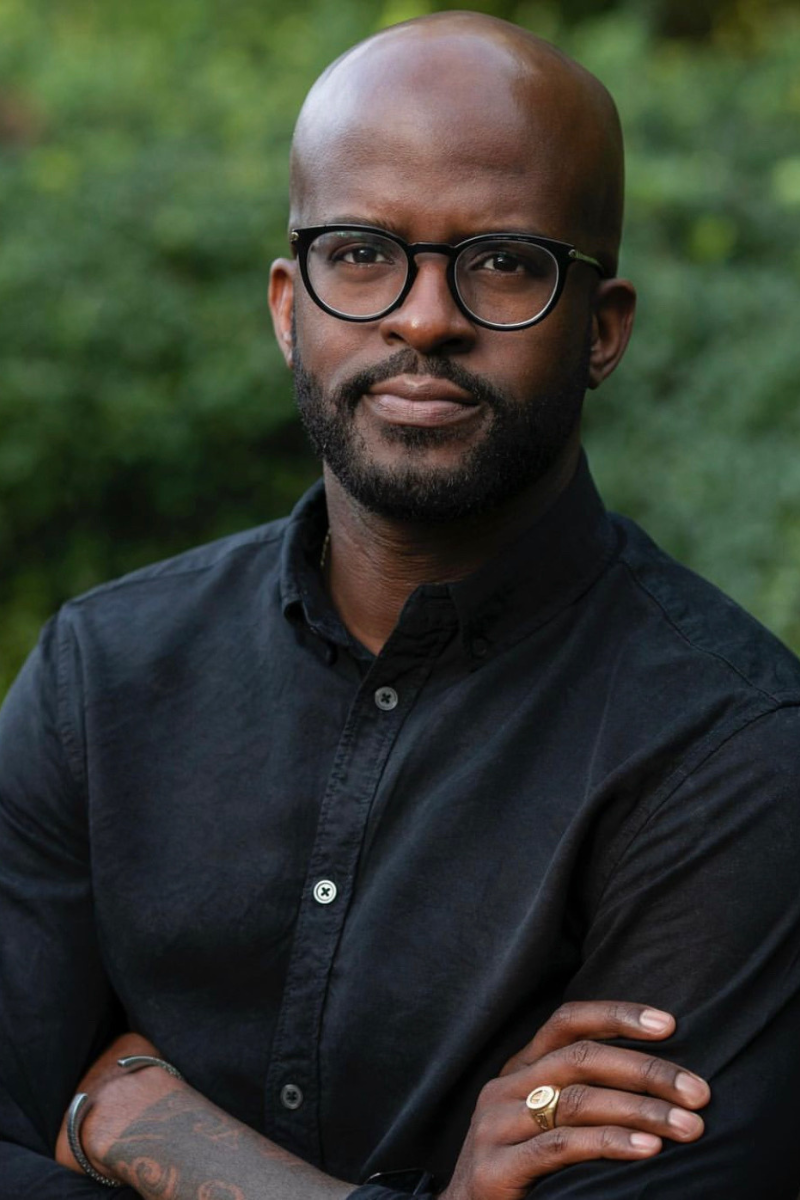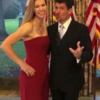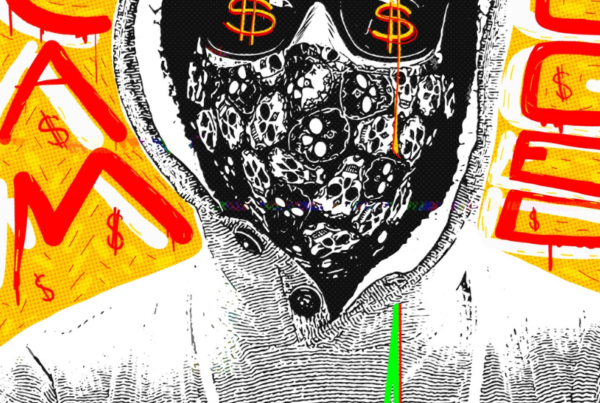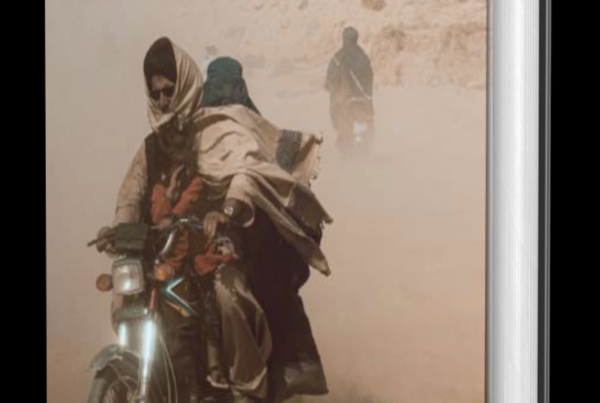WASHINGTON, D.C. – Drew Benow wears many hats: a devoted father, D.C.-based attorney, Capitol Hill policy expert and retired senior Army officer with multiple combat deployments and Bronze Star to his name. But most recently, Drew became a published author with a mission of a different kind – urging his peers in the Black community to think a little differently before casting a vote.
“We are a two-party system,” he tells me. “But we are only participating on one side. So, we must have a presence on both sides, not just the Democratic side.”
Drew’s advocacy isn’t about propelling a Republican agenda, but it is uniquely centered on urging the almost solely Blue-leaning community to make both sides step up in earning their mark on the ballot.
A native of Southeast Washington D.C.’s Anacostia area, Drew remembers the childhood challenges growing up as one of four kids with a single mom in what was then the nation’s murder and drug capital for several consecutive years.
“It was pretty rough. I grew up in a public school, section eight housing, and to navigate that environment as a kid was a real feat,” he recalls.
Yet Drew vowed that someday, somehow, he would do something to support a community in need. Although estranged from his father, a Vietnam veteran, he felt drawn to understanding what it meant to serve one’s country. His first step to greater service was joining the U.S. Army Reserves.
That was the year 2000.

Within a year, the relative peacetime was shattered. In basic training in Fort Jackson, South Carolina at the time, Drew remembers the intense confusion, the anger, the anxiety. He enrolled in a Political Science degree at Hampton University, but when the Iraq War kicked off in the spring of 2003, Drew was yanked from his studies and sent on involuntary orders to the hot zone. Enlisted at the time, he embarked as a Private Class on a 16-month deployment. However, it wasn’t just the challenges of a harrowing war zone that shaped his outlook; it was realizing that there was more he could and should be doing.
“I worked for a lieutenant who wasn’t much older than I was; he was probably 25 years old. And I remember me and one other guy, my colleague, doing all the work while the lieutenant would do whatever he wanted throughout the day,” Drew says. “He came back at the end of the day, we briefed him, and he briefed the bosses. Before that, I didn’t know if I could be a military officer or a leader. But I was doing the work of the person I worked for, and I realized I could do that job. I can be an officer. And I will be a much better alternative – someone who’s not going to have his workers do all the work. It gave me a bit of confidence that I could be the leader; I could lead, and I could go on and do great things from the driver’s seat, not from the back seat or some supporting role.”
Drew went on to do just that, complete his law degree at Mercer University in Georgia, and go on to do three more times after that, including to Afghanistan, where he earned the Bronze Star. His last deployment was to Kuwait in 2018, and he hung up his boots last June. But since then, Drew has set off on a mission of a different kind: ensuring political candidates on both sides of the aisle are earnestly working to improve the lives of the Black community and the issues that matter most.
After all, if there is anyone who knows the impact of voting and elections, it is those who have served in the United States military.
“Who we decide to put in office, especially at the executive – Commander-in-Chief – level make decisions that directly impact our lives,” Drew continues. “It is important for us to be informed and not just sit back and think that our vote doesn’t count or that we cannot participate.”
Since 1968, no Republican Presidential candidate has garnered more than 13 percent of the Black vote. But according to “Steadfast Democrats,” a study authored by Chryl Laird and Ismail White, the unwavering support is more complicated than it might seem on the surface.
“When African American men first obtained the right to vote after the passage of the 15th Amendment in 1870, they nearly all identified and supported the Republican Party and its candidates; rewarding the Party of Lincoln for its commitment to ending slavery and expanding black civil rights,” the authors wrote for Princeton University Press. “However, as political power was gradually returned to Southern Democrats, in part through the 1877 compromise which resolved the disputed 1876 presidential election, African Americans, who at this time nearly all resided in Southern states, were once again stripped of their voting rights.”
The authors point out that it would not be until the early 20th century, amid mass migration of the African American population to northern cities, given the repressive Jim Crow policies of the south, that the community would re-enter the fray of party politics.
“In the North, the Democratic Party, through its commitment to organized labor, would for the first time begin making inroads with black voters. Despite this, many African Americans, both North and South, maintained commitments to the Republican Party,” the authors surmised. “It was only when the Democratic Party took up the mantle of Civil Rights in the mid to late 1960s that black support for the Party coalesced into the reliable Democratic voting bloc we know today.”
From Drew’s lens, Black Americans have politically – almost exclusively – skewed left since Lyndon B. Johnson took the helm in 1963 following the assassination of John F. Kennedy. The problem now, he emphasizes, is that because Democrats expect to receive the Black vote automatically, they take those votes for granted. On the other side, Republicans too often expect that they won’t receive it; thus, they don’t put the resources into understanding and delivering for the community.
“So, what happens is there is no competition for the Black vote. And when the Democrats come to Black Americans, they come to us and say we just want you to vote. They don’t say vote for us; they say we need you to vote. It is all about just getting the numbers because they know whom we’re going to vote for,” Drew explains. “They go to other voting demographics and make a case and (pledge) to do this and that because they know they need to get that vote. They know they have to work for it and fulfill the things they said they were going to do.”
The soldier-turned-attorney likens it to a sporting game or a business endeavor: you can’t win a game if you are only going to go to midfield or play on one side of the court, or if Apple were the only smartphone on the market, they wouldn’t have to bother improving the camera quality because they aren’t competing for your loyalty.
“There is no competition for us folks,” Drew notes. “When companies compete, the consumer wins. They get a better product. It is the same thing with politics. When parties compete, the electorate wins.”
To further disseminate his message, in June, five months ahead of the much-hyped general elections, Drew released the thriller-esque fiction novel “The Devil’s Politics” (DiAngelo Publications, 2022) as a more indirect means of encouraging diversity in his community’s vote.
“Damion and Devon are identical twins. But it’s their differences that set them onto diverging life paths, resulting in their eventual estrangement. Devon grapples with his identity. He’s Black and a low-level aide to a Republican congressman. He’s forced to reckon with his politics and his social consciousness when one of the congressman’s past misdeeds lands them both in the center of a national scandal,” reads the blurb. “Deemed a bad apple from childhood, Damion’s story collides with Devon’s when a pair of hit men track Damion from his Army base in Afghanistan all the way to Devon’s Washington, D.C. doorstep. At its core, The Devil’s Politics challenges systems of power, suggesting a hot take alternative to contemporary black political participation, with the aim of strengthening black political empowerment in America.”
“Many Black Americans tell me, hey; Democrats don’t do anything for us. The reason I wrote the book is to introduce ideas into folks’ minds about how we can achieve greater political empowerment or at least political equality by examining how we vote,” Drew surmises. “(We need) to be running people on both sides who represent our views.”
And with the midterm elections on November 8, it’s a powerful reminder that there is a lot at stake. The results will undoubtedly impact the remaining two years of President Biden’s first term and beyond. The Democratic Party has held both the House and Senate majority for Biden’s tenure thus far, helping him to pass the legislation he put forth. However, the margins are tight, which makes for a critical contest this time around.
From immigration and crime to inflation, gun control, foreign policy and abortion rights, the cards are heavy on either side. A loss of support for Democrats would make it more difficult for Biden to fulfill new appointments (including in the Supreme Court) and could have a significant impact on shaping the 2024 Presidential elections. If Trump-endorsed candidates succeed, the likelihood of the former Republican President gaining the nomination dramatically increases, and if they do not, the GOP is more inclined to focus on other potential candidates.
Drew acknowledges that it has been tough breaking through, as “getting any group of people to change their mindset is always going to be an uphill battle.” But he is in it for the long haul.
“It takes a lot of paradigm-shifting,” he says. “Our (political) system is not perfect, but I believe it is the best system of all the countries in the world.”
On both sides of the aisle, candidates – especially in the dozen or so swing states – are trying to win the Black voting bloc. While in the short term, that could decide the delicate balance of power in Congress. Yet in the long term, Drew’s focus extends far beyond November 8.
Several years ago, Drew and a fellow veteran launched the non-profit HillVets as a means of supporting veterans to be able to afford to live and provide while earning a notoriously low wage working on The Hill, a critical place for representation and to ensure the veterans’ voice is heard. Drew sees such initiatives as also being essential to the Black community, which doesn’t have a significant representation among D.C. staffers.
“If you are in D.C., you are probably going to want to take a job with a federal agency or law firm or something that can pay a lot more, but these jobs on The Hill are incredibly impactful,” he adds. “Yet, they are very important to us.”











